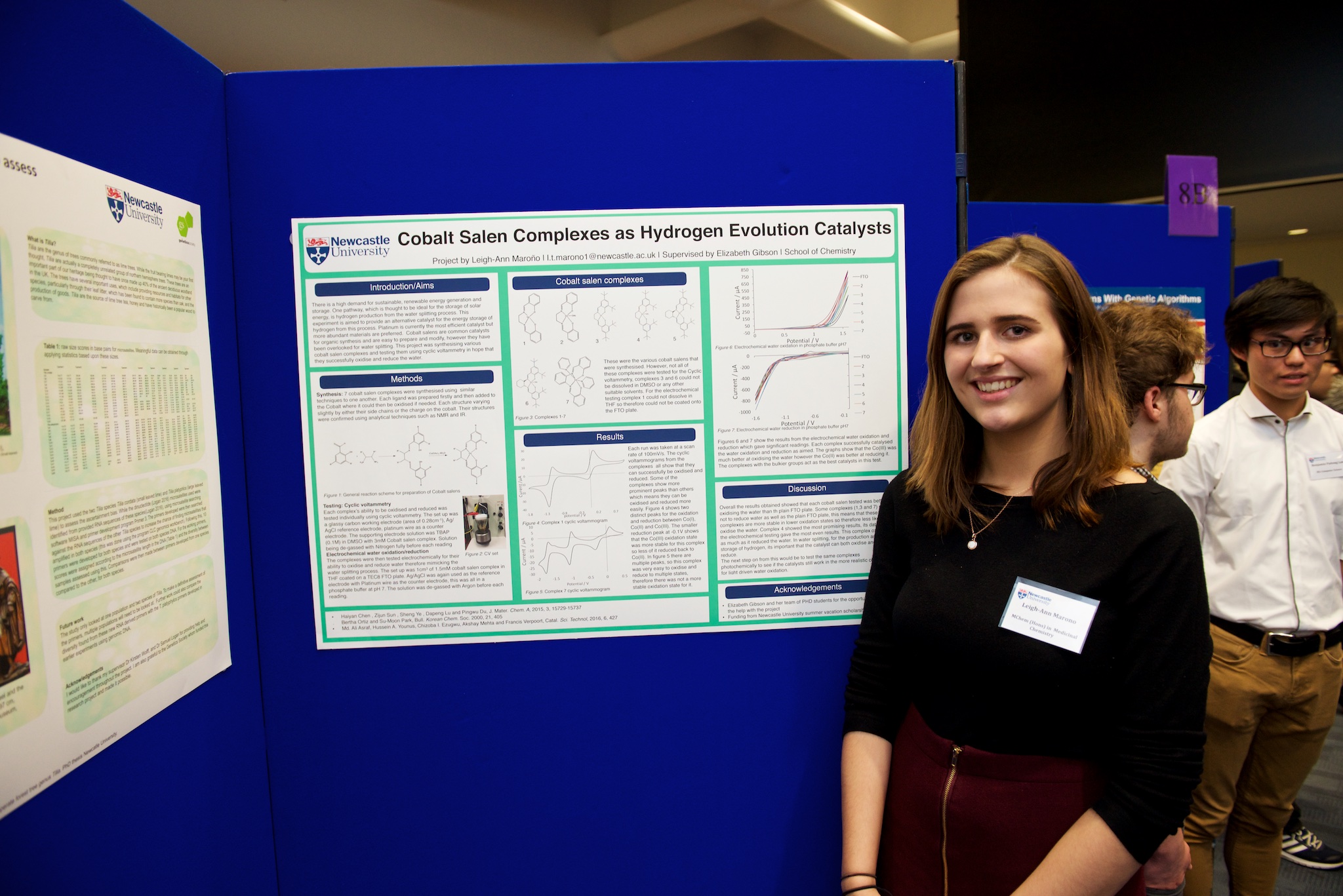2016 Participants
 Leigh-Ann Marono
Leigh-Ann Marono
There is a high demand for sustainable, renewable energy generation and storage. One pathway, which is thought to be ideal for the storage of solar energy, is hydrogen production from the water splitting process. A catalyst, which is a substance needed to speed up reactions, is used in the production of hydrogen. Platinum is currently the most efficient but more abundant materials are preferred. Molecular catalysts could offer a selective alternative to noble metals. Cobalt salen complexes, which are well known catalysts for many organic synthesis reactions, are easy to prepare and modify, however they have been overlooked for water splitting. This project involved preparing various cobalt salen complexes and testing their ability to act as catalysts for hydrogen production. The complexes were tested against each other using cyclic voltammetry, this shows which will be the best catalyst from their currents of oxidation and reduction.
Funding source: Newcastle University
Supervisor: Dr Elizabeth Gibson
